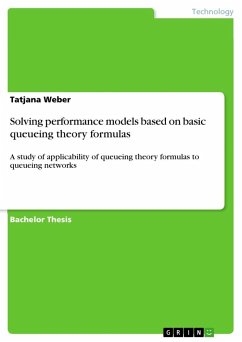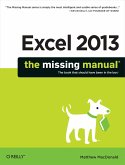Bachelor Thesis from the year 2017 in the subject Computer Science - Software, grade: 1,3, University of Würzburg, language: English, abstract: The importance and complexity of modern IT systems increased in the last decades. To ensure resource efficiency and Quality-of-Service demands, performance evaluation is useful at every stage in the life cycle of an IT system. Simulation-based performance analysis has a wide application, but computational costs grow the more complex the system of interest gets. However, analytical methods have a relatively high accuracy in the performance measures and in efficiency, so results can often be computed significantly faster. This thesis focuses on basic queueing theory. To represent complex IT systems Queueing Network models have been extensively applied. Possibilities and limitations of mapping basic queueing formulas on Queueing Network models are presented by using theoretical knowledge and practical comparison of a self-developed analysis tool with a simulation tool. Deviations in performance measures and savings on computational costs of the analytical solver are shown and by this the usefulness of analytical procedures will be underlined exemplarily.
Hinweis: Dieser Artikel kann nur an eine deutsche Lieferadresse ausgeliefert werden.
Hinweis: Dieser Artikel kann nur an eine deutsche Lieferadresse ausgeliefert werden.








